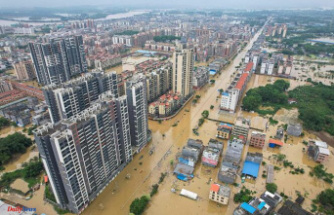Ingredients of an omelette for four people: half Kilo of potatoes, six eggs, olive oil until it covers the potatoes, salt and, for lovers of discord, half onion. Estimated preparation time: 30 minutes. Estimated price: At least 20'48% more than last year.
The shopping basket has suffered an exponential increase in the last months of the pandemic. The National Statistics Institute (INE) published last Monday that the annual variation of the general IPC - the conjunctural indicator that measures the evolution of the goods and consumption services acquired in the Spanish households - of August of this year was a 3 ' 3%. An increase of 0'4% compared to the July IPC this year.
Both data are provisional estimates still pending review, although the communication cabinet of the Institute has advanced that they do not usually vary too far. To be confirmed, this would be the highest rise in the CPI in the last 9 years. This increase goes from statistics at the kitchen table. Thus, following the valuations of the INE, itself, July 2020, making a tortilla for four cost around 2'05 euros, currently costs about 2'47 euros.
Among the reasons for this increase, INE stands out "the rise in electricity prices, greater this month than in August last year." If consumers are paying the exorbitant rise in light prices in their homes - which reached a new record yesterday, Tuesday with 130 euros the MWh - now they will also have to pay it indirectly in their shopping basket. This is a "double invoice" for consumers, as a few weeks ago Enrique García, spokesman for the Organization of Consumers and Users (OCU), which already last month warned the impact that the price of light could have The increase in the shopping cart.
And, as indicated since the Association of Consumers, energy affects the entire production and distribution chain. From the refrigeration chambers that retain food to the machinery to process it until the vehicle gasoline that transports them. However, not all parts of the chain consider that your role in the final increase of the IPC is the same.
"It's not about blaming the oil sector for the increase of the IPC," says Manuel Alfaro, president of the Spanish Federation of Industrial Olive Oil Manufacturers. The case of the oil is exemplifier. According to the annual variation of the IPC, the oil is one of the products that has suffered a greater increase in recent months, reaching an annual variation of 21'6% in July of this year. Although, according to Alfaro, "the current price is not the highest compared to previous years."
"We to transform a kilo of olive into oil we need electricity, and due to its increase, costs have increased around 21%." This chain rise is prolonged until the arrival of the product to the store. In this sense, Alfaro points out that "also the packaging machines need electricity to bottle the products". Since the federation ensure that this increase in costs have not been transferred to consumers, given that their contracts are six months and in that period "establish fixed prices, closed".
The increase of the CPI is also affected by another phenomenon: that of "the volatility of the harvest", which marks the rise or the drop in prices according to the success of this. Thus, when production exceeds the lawsuit -athered around 2'8 million tons in the case of oil, Alfaro- there is a surplus and prices descend, something that has been occurring with the oil harvest in the last years. On the other hand, this year, this year has not reached those 2'8 million that consumes the world production market, which increases demand and prices, "explains the president of the Federation. Therefore, according to the estimates of him, in July last year the price of extra virgin olive oil was 2'35 euros the liter and today is about 3'35 euros approximately.
This price dance between supply and demand, as well as the rise in production and distribution costs related to electricity, unequally affects sectors with greater or lesser competition. As Manuel García explains, "in an environment in which there is competition will be more difficult to move the rise in consumer prices, while in one without competition, this rise will affect more in consumers."
In turn, the OCU spokesman adds another explanation to the reasons for the rise of the IPC, and indicates that this "has to do with the expectations of recovery". A speculative tendency that moves al are of demand, reactivated thanks to the return to postpandemic "normality". In this sense augurs light at the end of the tunnel. "Inflation will stabilize as normal stabilizes in lifestyle".
Whatever the diagnosis, the current price increase "has a special incidence in the most disadvantaged economies," reflects García. It refers to 45% of the population, which, according to its own estimates, has seen its income diminished during the pandemic. "The greater the percentage of your rent that allocate these basic products, the worse will happen."
Date Of Update: 03 September 2021, 13:07











